NIH
-

From Yugoslavia to endowed chair: six pillars of academic success
Karoly Mirnics and Krassimira Garbett, staff scientist in his laboratory (Susan Urmy / Vanderbilt). I arrived in the states 21 years ago as a student, from what was to become the war-torn country of Yugoslavia. Twenty-one years later I am holding a title of James G. Blakemore Chair and vice… Read MoreMay 18, 2011
-
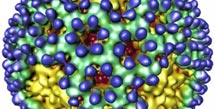
Cells open doors for reovirus
The cellular factor Src helps reoviruses enter cells. Read MoreMay 13, 2011
-

Early treatment reduces risk of passing HIV to partner by 96 percent
HIV-positive men and women can dramatically reduce the risk of transmitting the virus to their sexual partners by beginning antiretroviral therapy early, new research finds. Read MoreMay 13, 2011
-
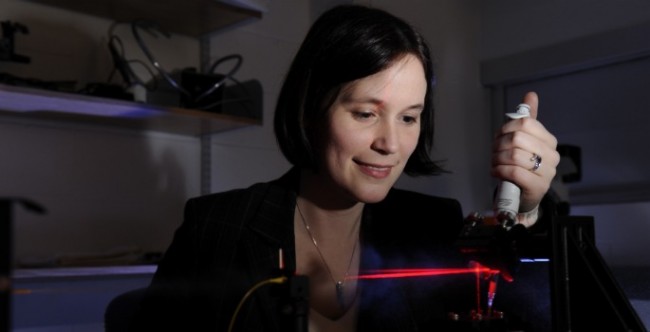
Investment in biomedical research yields jobs, billions in return
Federal funding from the National Institutes of Health contributed to the development of a new laser technique being used at Vanderbilt to aid in drug discovery. Research Amanda Kussrow is pictured. (Joe Howell / Vanderbilt) Federal investment in scientific research is a major driver of job growth… Read MoreMay 11, 2011
-
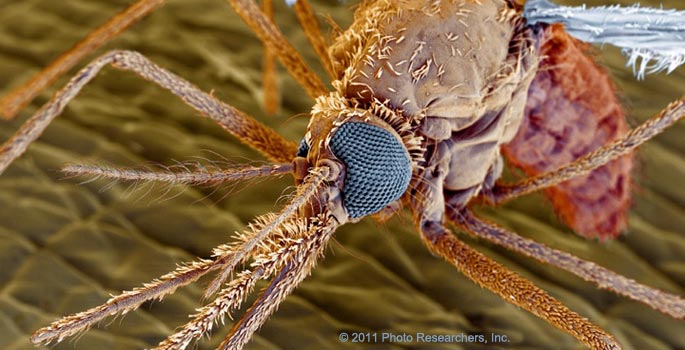
New insect repellant may be thousands of times stronger than DEET
Discovery of a new class of insect repellant raises the possibility of formulations that are thousands of times more effective than current repellants. Read MoreMay 9, 2011
-
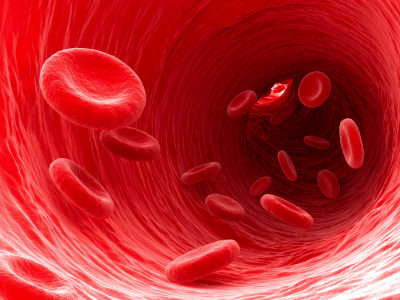
Stents relieve post-infection problem
Placing stents in blood vessels can provide long-term relief from rare complications of a fungal lung infection. Read MoreMay 5, 2011
-
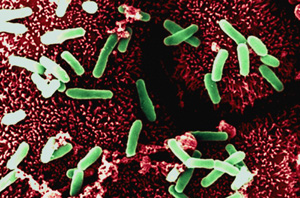
Host cell factors keep toxin at bay
Researchers have identified genes that may influence sensitivity of human cells to a bacterial toxin. Read MoreMay 3, 2011
-

Huge equipment delivery set for Stevenson Center May 7
Photo of NMR instrument courtesy of Bruker BioSpin More than seven tons of equipment is set to be delivered to the Stevenson Center on May 7. A Nuclear Magnetic Resonance spectrometer will be lifted in through the roof. The 900 MHz NMR spectrometer will be delivered to… Read MoreMay 2, 2011
-

Gene variant impacts exercise blood pressure
Subtle genetic changes can have big effects on blood pressure while exercising. Read MoreApr 28, 2011
-

Fishing for a new model of tuberous sclerosis complex
A zebrafish model of the genetic disease tuberous sclerosis complex will speed new discoveries. Read MoreApr 27, 2011
-
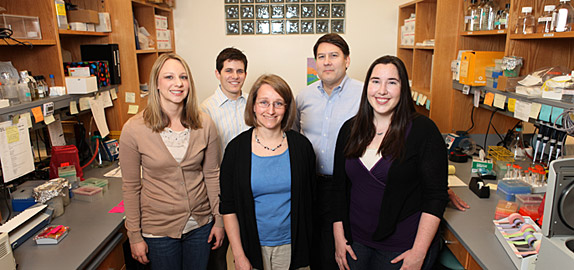
Potassium channel gene modifies epilepsy risk
The discovery of a new gene that can influence a person's risk for developing epilepsy could improve diagnostic tools and open the door for new therapies. Read MoreApr 18, 2011
-

Dialing down the mercury
Antioxidant compounds may counteract the neurotoxic effects of methylmercury, new research suggests. Read MoreApr 14, 2011
-

Mouse study offers clues for childhood obesity
An obesity-associated genetic variation makes fatty food more rewarding yet less satisfying, new research in mice suggests. Read MoreApr 13, 2011
-
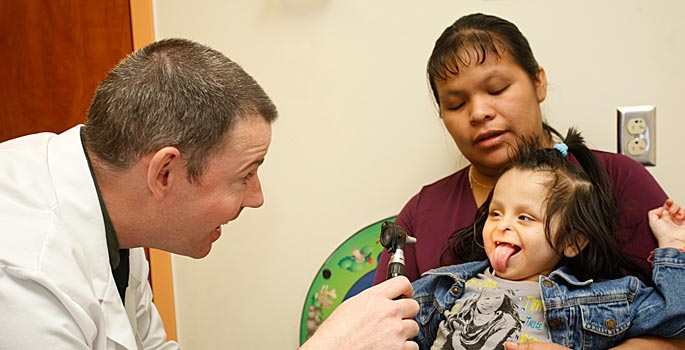
Vaccines do not harm children with metabolism disorders
A new study finds no link between childhood vaccinations and a type of metabolism disorder. The study is the latest to provide evidence of vaccination safety. Read MoreApr 12, 2011
-

Four new Alzheimer’s genes uncovered
Jonathan Haines, director, Vanderbilt Center for Human Genetics Research (Vanderbilt) Vanderbilt researchers, who helped organize a consortium including the University of Pennsylvania School of Medicine, the University of Miami Miller School of Medicine, and the Boston University School of Medicine, have identified four new genes linked to… Read MoreApr 4, 2011
-

Gene ups risk for needing pacemaker
Researchers have identified a gene that increases the risk for developing sick sinus syndrome – the most common cause for implanting a cardiac pacemaker. Read MoreApr 1, 2011
-

How young brains make sense of senses
The brain’s ability to process multiple sensory inputs continues to develop well into childhood, a recent study shows. Read MoreMar 31, 2011
-

Breast cancer vulnerable to multi-hit therapy
Combining targeted therapies may increase their effectiveness in treating a common and aggressive form of breast cancer. Read MoreMar 21, 2011
-
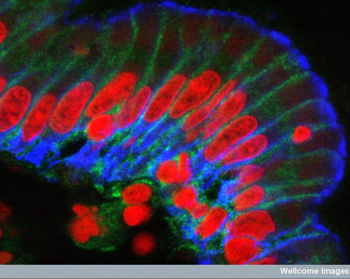
Protein combos keep cells straight
Researchers define the protein interactions that establish our organs' lining. Read MoreMar 18, 2011
-
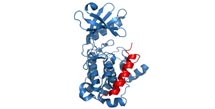
Spying on shape-shifting enzyme
New molecular views of an enzyme may inform therapies for neurological, psychiatric or cardiac diseases. Read MoreMar 18, 2011